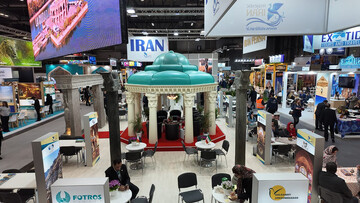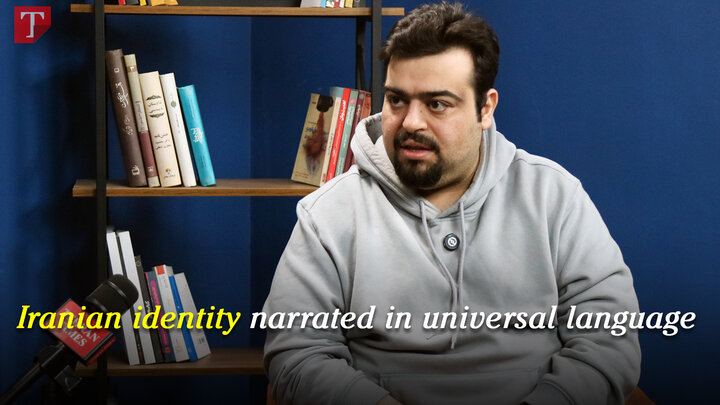-
 2026-01-07 22:10
2026-01-07 22:10
By Faramarz Kouhpayeh
Mossad hunting for blood in Iran's protests
Israel hopes a sensational story will help expand riots and enable US attack
TEHRAN – While Iranian authorities engage in dialogue with business owners and merchants protesting currency volatility—and prepare to introduce major reforms to ease economic hardships resulting from years of Western sanctions—Western media outlets have once again joined forces with their respective governments and their colonial project, Israel, to exploit the situation.
-

By Sondoss Al Asaad
Lebanon at the edge of an imposed escalation?
BEIRUT—Amid escalating Israeli enemy rhetoric about widening the circle of confrontation and Washington’s clear shift toward imposing faits accomplis under the logic of “the law of the jungle,” Lebanon finds itself navigating an exceptionally sensitive political and security moment.
-

By Shahrokh Saei
Greenland today, Europe tomorrow: Mapping the rise of Trumpland
TEHRAN – President Donald Trump’s imperial ambitions show no sign of slowing, fueled by hubris and the momentum of America’s deadly military strikes in Venezuela — a campaign that culminated in the abduction of President Nicolás Maduro. Trump has now declared that Venezuela “will be turning over” up to 50 million barrels of oil — valued at roughly $2.8 billion — to the United States.
-

By Wesam Bahrani
Syrians gambling with Israel
TEHRAN – Why are some Syrians betting on the Israeli regime and its risks for Syria’s unity?
-

By Mohamadreza Seyedagha
“The Legend of Sepehr”: Iranian identity narrated in universal language
TEHRAN – The Iranian animated feature “The Legend of Sepehr,” directed by Emad Rahmani and Mehrdad Mehrabi, has recently started its theatrical run in Iran after achieving global success.
-

First images received from Iran's newly launched Paya satellite
TEHRAN – The Iranian Space Agency (ISA) has released the first images captured by its recently launched Tolou-3 satellite, commonly known as Paya. The images were received in recent days, following the satellite's successful orbital insertion.
Politics
-

Araghchi engages with Pakistani, Iraqi counterparts through letters
TEHRAN – Iranian Foreign Minister Abbas Araghchi has dispatched diplomatic messages to the foreign ministers of Pakistan and Iraq, as confirmed by Iranian diplomatic sources on Wednesday.
-

Iran executes convicted Mossad agent who was set to flee to UK
TEHRAN – Iran has executed a key Mossad operative convicted of espionage, marking the latest action in its decisive security campaign against foreign spy networks operating within its borders.
-

Syria today; a test case for Iran
Syria after Bashar al-Assad was supposed to be “free.” But what is visible today from Damascus to Aleppo is not freedom – it is destruction, fragmentation, and chronic insecurity. “Free Syria” has become the name of a project that turned an entire country into a testing ground for occupation, terror, and plunder.
Sports
-

Iran U23 show structure and discipline against Korea Republic
TEHRAN - Iran’s U23 national team opened their AFC U23 Asian Cup campaign with a goalless draw against Korea Republic, a result that revealed more about the team’s tactical identity and developmental direction than the scoreline itself.
-

Korea Republic, Iran settle for draw in AFC U23 Asian Cup 2026
TEHRAN - Korea Republic and Iran settled for a goalless draw in their AFC U23 Asian Cup Saudi Arabia 2026 opening Group C match on Wednesday.
-

Iranians honor 58th anniversary of Takhti’s death
TEHRAN - Iranians on Wednesday marked the 58th anniversary of the death of legendary wrestler Gholamreza Takhti, a national icon whose legacy extends far beyond sport.
Culture
-

First International Cartoon and Poster Contest “Terror Online” concludes in Tehran
TEHRAN – The closing ceremony of the first International Cartoon and Poster Contest “Terror Online” was held on the evening of January 5 at the Art Bureau in Tehran.
-

12th Tehran International Cartoon Biennial to open in Iranian Academy of Arts
TEHRAN- The 12th edition of the Tehran International Cartoon Biennial will be inaugurated on Thursday evening at the Iranian Academy of Arts.
-

Tehran theater to host reading performance of William Inge’s “Picnic”
TEHRAN- Neauphle-le-Chateau Theater in Tehran will be playing host to a reading performance of American playwright William Inge’s 1953 play “Picnic” on Saturday.
Economy
-

Road transit through Iran’s land borders reaches 12.5m tons in 9 months
TEHRAN – Road transit of goods through Iran’s land borders reached about 12.5 million tons in the first nine months of the current Iranian calendar year (March 21-Decemebr 21, 2025), reflecting continued growth in overland trade flows across the country, a senior transport official said.
-

Iran petrochemicals exhibit opens in Kish with exports topping $10b
TEHRAN – Iran’s third petrochemical industry exhibition opened on Kish Island on Tuesday, bringing together more than 200 domestic companies amid renewed focus on technology, investment and export growth in one of the country’s main hard-currency earning sectors.
-

NIDC completes drilling of 101 oil, gas wells since late Mar. 2025
TEHRAN –National Iranian Drilling Company (NIDC) has completed 101 oil and gas wells so far this year (started in late March 2025), with total drilling footage reaching 103,456 meters, the company’s head said.
Society
-

DOE approves seven community conserved areas
TEHRAN – In an effort to strengthen the participation of local communities in conserving nature, the Department of Environment (DOE) has approved seven natural areas to be protected by the public.
-

Workshop held to enhance national capacity for drug use disorder treatment
TEHRAN – The United Nations Office on Drugs and Crime (UNODC), in close collaboration with the Iranian Drug Control Headquarters (DCHQ) and the Ministry of Health and Medical Education (MoHME), has held a training workshop aimed at enhancing the competencies of drug use disorder treatment professionals through the systematic application of the UNODC TreatNet Training Package.
-

Health ministry, UNICEF join hands to activate Child Protection Committees in hospitals
TEHRAN – To ensure that medical settings serve as a strong shield for children at risk, the United Nations Children’s Fund, in cooperation with the Ministry of Health and Medical Education, has organized an event to strengthen integrated child protection services as the first step toward activating Child Protection Committees within hospitals.
Tourism
-

Sarakhieh, Iran’s little Venice
At first, it is hard to believe such a place exists in Iran. But deep inside the vast Shadegan wetland in Khuzestan province, there is a village where water is the main road and boats replace cars. This village is Sarakhieh, often called Iran’s “Little Venice.”
-

Sa’dabad Complex’s historical documents rescanned and recatalogued
TEHRAN - Historical documents held at Tehran’s Sa’dabad Cultural-Historical Complex have been recatalogued and rescanned in recent months following a years-long pause, a museum official said.
-

Iran to participate in FITUR, EMITT 2026
TEHRAN--Iran is to participate in FITUR (the International Tourism Trade Fair) in Spain and EMITT 2026 in Turkey during current year.
International
-

Lebanon at the edge of an imposed escalation?
BEIRUT—Amid escalating Israeli enemy rhetoric about widening the circle of confrontation and Washington’s clear shift toward imposing faits accomplis under the logic of “the law of the jungle,” Lebanon finds itself navigating an exceptionally sensitive political and security moment.
-

Greenland today, Europe tomorrow: Mapping the rise of Trumpland
TEHRAN – President Donald Trump’s imperial ambitions show no sign of slowing, fueled by hubris and the momentum of America’s deadly military strikes in Venezuela — a campaign that culminated in the abduction of President Nicolás Maduro. Trump has now declared that Venezuela “will be turning over” up to 50 million barrels of oil — valued at roughly $2.8 billion — to the United States.
-

Syrians gambling with Israel
TEHRAN – Why are some Syrians betting on the Israeli regime and its risks for Syria’s unity?
Most Viewed
-
What would an 'unconfined' Iranian response look like?
-
15240
-
Mossad hunting for blood in Iran's protests
-
Iran moves towards single forex rate, aims to unify forex markets amid economic concerns
-
Sarakhieh, Iran’s little Venice
-
First images received from Iran's newly launched Paya satellite
-
Lebanon’s governance in crisis
-
Iran executes convicted Mossad agent who was set to flee to UK
-
From ally to aggressor: Greenland exposes Europe’s security illusion
-
Baghaei tells Tehran Times ‘relations with Lebanon matter greatly’ ahead of FM’s visit
-
Tehran rallies Latin American allies after US ‘law of jungle’ act in Venezuela
-
Iran decries US 'rogue state' actions in Venezuela and against itself
-
Greenland today, Europe tomorrow: Mapping the rise of Trumpland
-
The West’s nuclear renaissance and the denial of others’ rights
-
Syrians gambling with Israel












